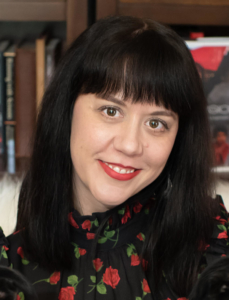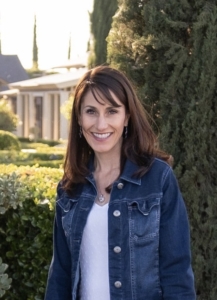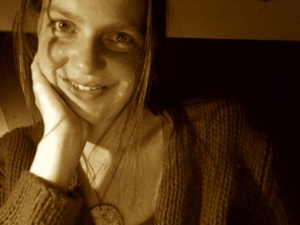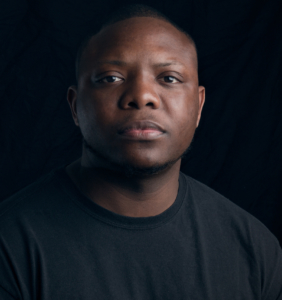Rewriting Southern Traditions
LAKE HARTWELL, SOUTH CAROLINA
By Beth Gilstrap
It’s past lunch hour and Grandmother is still wearing her
housecoat. Tings and sprays bounce from the stovetop. A
glimmer of steam gathers on her upper lip, not sweat, mind
you—not sweat. The peonies on the fabric are wide and
heavy pink, like they’d fall over if they were out in the
side garden as they always are during late April. But we are
in July and July is sweet and frayed, the grass only green
down on the banks of the lake. Me and Juna played chicken
on rafts all morning. Our suits still damp when we put
them on, hers only halfway up as we ran out the door, letting
it slam too hard, hearing Grandmother say, “Watch my
nerves. For Lord’s sake. My nerves.” By the time we come in,
we were striped, our torsos a wormy kind of white, our fingertips
wrinkled, begging for fried squash and okra Grandmother
had in heaps by this point, for smushed-up peaches
meant for the ice cream churn, for teeth-cracking chunks of
rock salt, the wayward bit of a watermelon seed, you know,
that stringy bit you can’t get down no matter how hard you
try so you wind up spitting the seeds on Grandmother’s
floor even though you wasn’t supposed to be eating them in
the house cause y’all know better, cause she done told you
twice to get your butts outside. And once you’re outside,
the menfolk stand in a circle around their cache, taking
stock of M-80s and bottle rockets and whirling spiders and
whistling dixies, which was basically the same, but hateful,
so hateful you could feel it blow your cousin’s pinky off
even though some grown-up yelled “fire in the hole” and
dumbass stood there in a sulphur fog like it was all happening
to someone else and next year when you and Juna went
in at lunch you were practically teenagers and ate rolled-up
honey ham cigars and Chicken in a Biskit Crackers—those
buttery rectangles with a chemical chicken flavor—instead
of spitting seeds on the floor cause now y’all were good girls,
making sure to let Grandmother lie down awhile and have
herself a little peace in the back room with the big box fan
and a single bed and her thin, yellow sheets.
ABOUT BETH: Beth Gilstrap is the author of the Deadheading & Other Stories, Winner of the 2019 Red Hen Press Women’s Prose Prize due out October 5, 2021 and available for preorder now. She is also the author of I Am Barbarella: Stories (2015) from Twelve Winters Press and No Man’s Wild Laura (2016) from Hyacinth Girl Press. Her stories, essays, and hybrids have appeared in Denver Quarterly, Wigleaf, The Minnesota Review, New Flash Fiction Review, and the Best Microfiction Anthology, among others. Born and raised in the Charlotte area, she recently relocated to Louisville where she lives and writes in an ornery old shotgun house.
LEAN INTO LYRICAL TRADITIONS WITH BETH: Join Beth for a reading and book discussion of Deadheading and Other Stories on October 20, at 6 PM for our next Wednesdays@Lit. And join Beth for Uneasy Women: Writing Feminist Southern Gothic Fiction on October 21st. In this workshop, you’ll examine writing traditions, how they’ve changed, and how we might craft them for 21st Century readers by examining excerpts from contemporary female authors including: Toni Morrison, Jesmyn Ward, and Dorothy Allison. We will examine how they subvert traditional gender roles, how they give agency to characters (often deemed outsiders) who have traditionally been victims of the American capitalist patriarchy. More information is here.








